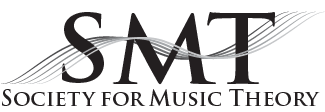Hello!
If you would like to participate in discussions, please sign in or register.
Categories
In this Discussion
- Carson Farley December 2014
- Isaac Malitz December 2014
Most Popular This Week
Query on Listening Habits
This morning I clicked on a link in the online Arts Journal to a blog post titled "How Writers Read." This got me wondering about how music theorists listen -- not in the sense of what you hear while listening to this or that music, but (in the sense of the survey of writers in the blog post): what do you listen to outside the expectations/requirements of your profession? I don't intend this as a questionaire & the following questions, numbered only for reference, are only suggestions to stimulate sharing thoughts about what you personally listen to & why (-- and perhaps as a bonus, how the answers might affect how this might help you help others to open up their own ears to as broad a sound spectrum as possible).
- Do you tend to listen to music you know well already, or do you tend to explore? (What does "explore" mean to you with regard to listening to music?)
- What sorts of contemporary works do your ears gravitate toward?
- How often do you listen just to stretch your ears?
- Why do you listen to something you've never heard before? How do you approach music entirely unfamiliar to you?
- Do you listen to much music from outside your geo-political sphere? (e.g., American theorists: beyond the usual well-knowns names, how much music do you listen to from European, South American, African, Asian sources?)
- How do you find music you've never heard before? Regular or occasional focussed searches? Journal article mentioning a piece you've never heard? Random perusal of web site lists? Serendipity?
- Do you tend to look for works to listen to that are inside or outside your professional sphere?
- Common writers' advice to students is to read widely -- how do you encourage your students to listen widely? (Or should they focus on music related to current coursework?)
- Do you keep a (non-technical) "listening diary" of your impressions on first hearings & do/would you encorage your students to do this?
etc.
SMT Discuss Manager: smtdiscuss@societymusictheory.org


Comments
Good questions ! Here are my answers:
I am explorer mainly.
Whatever is really good. I pay attention to a few people who I think have a knack for noticing good stuff. And I use OMS modeling to distinguish "really good" from "just interesting".
I am always trying to stretch my ears.
"Just listen with the vastness of the world in mind. You can't fail to get the message." - Pierre Boulez
(neutral on this one)
Marino Formenti. Monday Evening Concerts. YouTube.
Since I am preoccupied with models, everything is in my sphere. Including Barney the Dinosaur.
I'm not an instructor. If I were, I'd present students with the Boulez quote, do listening/mindfulness sessions, and talk about models. These days, listeners (including professionals) tend to get boxed in by models without even being aware of it. "Broad experience" depends more on alternative models rather than listening to lots of stuff. Even Bing Crosby can become a radical experience via the right models.
That's what OMSModel does, except the diaries have a certain core structure.
Isaac Malitz, Ph.D.
imalitz@OMSModel.com
www.OMSModel.com
818-231-3965
Here's my answers:
1. both
2. classical, world musc, music in art film scores, experimental sound
3. every day!
4. because the universe is an interesting place! with and open mind.
5. yes, frequentley - could be anything such as Japanese court music, native American music, etc.
6. from reading on subjects of theory or history, internet exploration, from film scores, radio, etc.
7. both - I like any good music!
8. sometimes instead of a regular lesson I'll bring examples of all kinds of music from all genres and we'll just listen and talk about the experience
sorry that posted before i finished the content:
8. sometimes instead of a regular lesson I'll bring examples of all kinds of music from all genres and we'll just listen and talk about the music: what instruments do you hear, what language, what do you think this music is for, how does it make you feel, is it old music or new music, do you hear repetitions, etc. I also do a music history lesson with all my students that is auditiory and surveys all or most periods of Western art music and we discuss the music during and after an example and I point out certain features of technical, stylistic, or historical importance.
9. no, but I do encourage them to listen to music specifically without distractions.